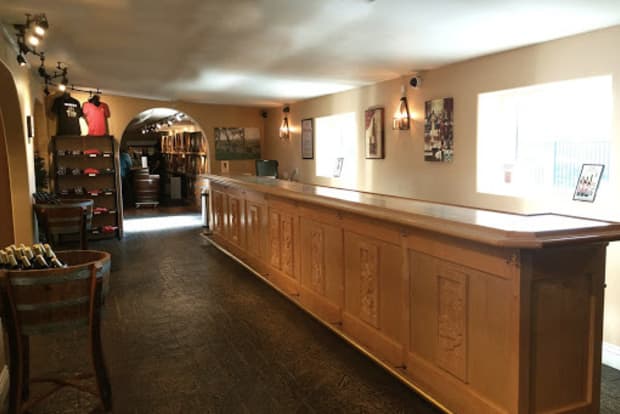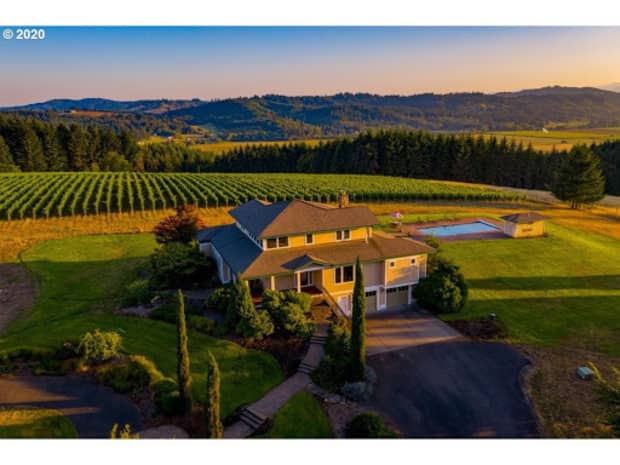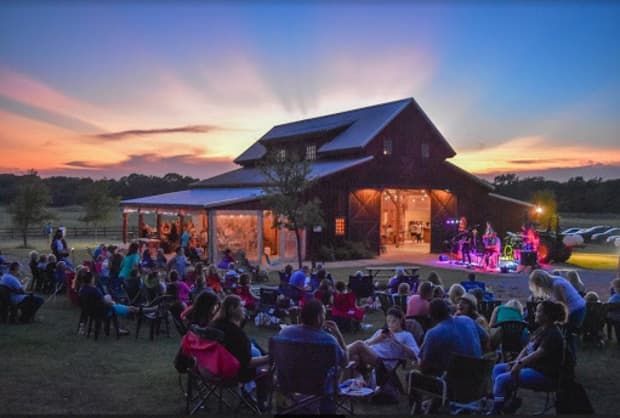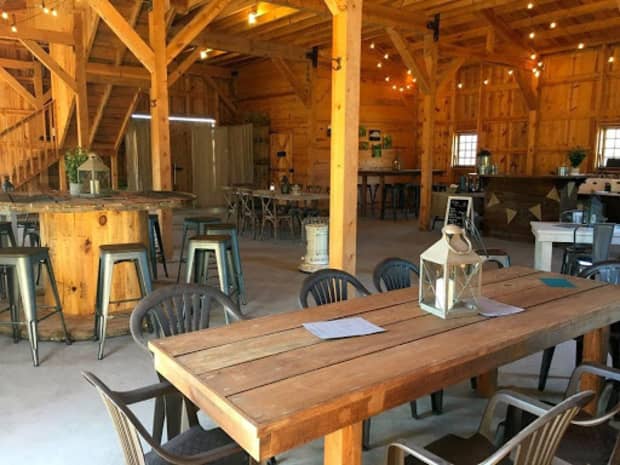This article is reprinted by permission from The Escape Home, a newsletter for second homeowners and those who want to be. Subscribe here. © 2021. All rights reserved.
One giant pandemic takeaway is that life as we know it is not guaranteed. That’s led to an uptick in reconnecting with the outdoors, pursuing passions and not putting off dreams. Abandoning city life and moving to a vineyard to work in the wine industry embodies all of that.
We asked veterans of the wine business to tell us if it’s really as dreamy as it seems. The short answer? Yes. But it requires an immense amount of labor, passion and will to be successful.
Former president and co-owner of Benziger Family Winery in Sonoma, California, Tim Wallace, walked us through the ups and downs of running a winery. First and foremost, he said, there are the obvious perks. Grapes need to be grown in a Mediterranean climate, so chances are you are living in a beautiful part of the world. As a farmer, you get to witness the “beautiful cycles of nature” throughout each year. And then there is the wine itself. “You get to see, if you will, the fruits of your labor. It’s not an abstraction. You are literally doing. And you get to drink it!”
Additionally, there is a strong sense of community within the industry.
“It is a more collegial and cooperative industry than most because at its core it’s farming, and farmers go out of their way to help each other.”
However, Wallace is emphatic: It’s one thing to revel in nature’s wonders, but it’s another to run a business. Selling alcohol in such a regulated industry requires a lot of responsibility. And because it is such a highly regulated and taxed industry, a huge portion of the profits never makes it to the producers.
Further, the cycles of success in the wine business completely depend on environmental factors, or what Wallace calls “environmental villains.” The rising rate of California fires and droughts are a constant and unavoidable threat. In just a couple of days, the majority of your harvest can be wiped out, meaning you will only be able to sell a fraction of the product you invested your time and money on. One of the most popular sayings in the wine industry, according to Wallace, is “to make a small fortune, you have to start with a big fortune.”
Jim Martin, an expert in the real estate of wineries, laid out some of the economic hurdles a prospective winery owner has to jump through. Firstly, he warns, even in the best case scenario, it can take three to four years from when you first plant to when you are able to start selling, and 10 years before you see a profit.
The checklist looks something like this:
- Once you have figured out what type of grape you want to grow, you must find a vineyard that you will either completely re-plant or nurse back to life.
- You have to be able to afford it. In Sonoma and nearby Napa Valley, Martin noted that vineyards can reach prices between $90,000 to $100,000 per acre, sometimes even $200,000 depending on the type of grape.
- Then you have to find and fund the infrastructure: the de-stemmers, the barrels, the laborers who will pick the grapes, the watering systems and more.
- You also have to apply for permits to tap into reservoirs and ponds; water rights have become more and more complicated and expensive since the droughts have become worse — and you can’t grow grapes without a reliable and ample water source. The yearly maintenance costs can run in the millions.
And doing the above doesn’t ensure success — it’s not as easy as simply producing excellent wine — you also need to be able to sell it. Bronwyn Ney, who runs a wine industry consulting business in Napa Valley, provides experts tips on how to successfully market wine. She says that success revolves around targeted marketing strategies that start with finding “your special sauce” and the creation of an excellent story.
“You have to find your niche — why does your winery exist? Why is it better than the one next door? Why is your product better than your competitors?”
The U.S. wine business, of course, is more than California. Adam Lee, owner and winemaker of Clarice Wine Company explained that aside from Oregon and Washington, Texas is an up-and-coming area for wineries. Northwest of Austin and near the Lubbock area, there is hill country that is ideal for growing grapes. The great part about Texans, according to Lee, is that they care less about what the next hot grape is, and more about if the wine tastes good or not, which means that production can be a lot cheaper than in California. Plus, the area is eager to increase tourism.
Feeling inspired? We asked all our experts one last question: What one piece of advice would you give to someone who wanted to drop everything in the city and start a winery?
“You better not be doing it for the economics,” Wallace said. “You should be doing it for the passion of the product because that is what will sustain you. This is the endgame.”
Similarly, Lee noted, “if you think it’s just going to be a fun adventure, I would say don’t do it. But if you are truly passionate and want to devote yourself to it, do it.”
Lastly, Ney pointed out that “if the pandemic has made anything clear, there is no better time to start living your dream. Life is short and if it’s your passion, do it.”
The following is from our “on the market” section.
Inspired by our column about vineyards? Here are a few for sale:

This fully functioning and self-contained winery, listed at $13.9 million, sits on a 40-acre vineyard in Temecula, California.

Buyers would inherit a business that has received 50,000 visitors annually, plus a 3,266 square-foot residence on the property that is currently used as a bed & breakfast and wedding venue.

This Willamette Valley, Oregon, vineyard property features four bedrooms, with three full baths and two half baths in a gated estate complete with a saltwater pool.

For $3.3 million, buyers get roughly 30 acres of mature vineyard planted with Pinot Noir grapes, plus an additional 22 plantable acres.

BarnHill Vineyards, a fully functioning and profitable winery in Anna, Texas, is on the market for $3.85 million.

The property includes a fenced-in pasture for cattle and horses, a beautiful tasting room housed in a wooden barn and a 3,000 square-foot residence with a 100% stone exterior.
This article is reprinted by permission from The Escape Home, a newsletter for second homeowners and those who want to be. Subscribe here. © 2021. All rights reserved.
"do it" - Google News
April 24, 2021 at 01:37AM
https://ift.tt/3tOMrpN
Want to buy a vineyard? 'Do it for the passion' — not the economics - MarketWatch
"do it" - Google News
https://ift.tt/2zLpFrJ
https://ift.tt/3feNbO7
Bagikan Berita Ini














0 Response to "Want to buy a vineyard? 'Do it for the passion' — not the economics - MarketWatch"
Post a Comment